by Kellene
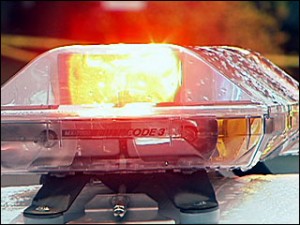 The fact of the matter is, no law enforcement, government, or rescuer group can prepare a community. It all starts with you—the true first responders.
The fact of the matter is, no law enforcement, government, or rescuer group can prepare a community. It all starts with you—the true first responders.
Just in the last 5 years alone, nearly a billion dollars has been spent throughout our nation upgrading and retrofitting buildings and structures so that previous disasters are not repeated. And yet not a single dime is being spent on preparing the people in order to avoid defeating responses to disasters.
Community affected
Case in point: Many of you may not know, or may have forgotten that the World Trade Center was attacked in 1993. All kinds of studies were done afterwards as to how to make the buildings and the perimeter safer—ten thousand pound planters placed strategically around the outside, pictures of truck drivers taken for all deliveries and bomb-sniffing dogs were employed—yet NOTHING was done to make the people safer. In spite of many fire marshals expressing grave concerns about their lack of training after the 1993 WTC attack, nothing changed in training the people. Two-thirds of the on site fire marshals didn’t even know where the stairwells were at the WTC in 1993. That statistic did not change prior to 9/11 either. In fact 45 percent of the workers at the WTC did not even know the buildings had stairwells! Many of the critical human decisions that cost lives as a result of the 1993 attack were repeated verbatim during the 9/11 attacks. Hundreds more people would have survived 9/11 had they been trained WHERE the stairwells were, how to use the connecting hallways, and to actually take an immediate response in evacuating the building instead of doing nothing. Yes, I realize in hindsight that the thought of someone doing nothing after the first plane hit is unthinkable; but indeed, hundreds of individuals did absolutely that–nothing. Equipment and structures have been altered all over the U.S. as a result of 9/11, Hurricane Katrina, and the I-35W bridge collapsing, but there have been absolutely NO concerted efforts to educate people.
 So, what can you do about this? Get yourself educated on the 10 Principles of Preparedness—particularly the first three areas, Spiritual, Mental, and Physical. I have been studying human responses to natural disasters nearly at a PhD level lately. Just in the last two weeks alone I’ve feasted on three hefty books on the subject. If I could summarize the most significant reoccurring theme in everything I’ve read, it is that human beings need to better mentally prepare for these kinds of events. (Of course there aren’t a lot of lay mans books that discuss spiritual preparedness, but that’s simply an indicator of a whole ‘nother issue.)
So, what can you do about this? Get yourself educated on the 10 Principles of Preparedness—particularly the first three areas, Spiritual, Mental, and Physical. I have been studying human responses to natural disasters nearly at a PhD level lately. Just in the last two weeks alone I’ve feasted on three hefty books on the subject. If I could summarize the most significant reoccurring theme in everything I’ve read, it is that human beings need to better mentally prepare for these kinds of events. (Of course there aren’t a lot of lay mans books that discuss spiritual preparedness, but that’s simply an indicator of a whole ‘nother issue.)
If the community won’t open their doors to educate you, don’t just sit there and complain—invite the community to come to you! Hold parties in your home in which you discuss what needs to be done as a group in the event of major disasters. I have frequently held “Preparedness Parties” in which I prepared yummy meals made right out of the pantry, handed out recipes, and we discuss specific preparedness topics. And yes, I’ve even created some games that help hit a point home that are entertaining, funny, and memorable. They are evenings of fun and socializing, not gloom and doom. As such, the things discussed are more memorable and more likely to be acted upon. I once even had a Ladies Night Pampered Preparedness Party in which we played games, got paraffin wax treatments on our hands and lots of yummy food to eat. (The house was full of women who wanted the hand treatments. Hee hee. Don’t you just love how bribery works?)
Community Preparedness Ideas
Here’s an idea for a game. Do you remember ever playing the game Pit? Well, I created a similar game. I created a bunch of cards with various supplies on them, including spiritual strength and physical strength. I also included some luxury items such as a generator, heated shower, etc.; then as the guests arrive, I had them select 10 cards blindly. During the course of the first hour of the party they traded what they had in excess in order to try and get what they needed to be perfectly prepared. It’s a real eye opener. So many people actually gota tad bit stressed out because they aren’t able to trade enough for food or water. And they found the generator or shower was useless without some of the more critical items. They also discovered that they’d rather not have to trade for items because they have no way of knowing what items others will have. So they’d just assume be proactive in having the item on hand initially for peace of mind.
I also did another game in which they are given a recipe which they have no doubt ever made before. And they are given only a few short minutes in which they have to create the recipe and make it edible. They are also given a pressure cooker in which they have to make the meal. (Most folks have never used a pressure cooker before) And lastly, they are only given a few other tools to use such as only a quarter cup measuring cup, one spoon, one fork, and a pitcher. So here they have a foreign recipe, foreign ingredients, and alien tools. Once the timer starts, chaos ensues. Food is flying. Folks are even panicking. It’d be quite funny if it wasn’t such a real representation of what can happen if people don’t better prepare with their tools and what they intend to eat in a survival scenario. Oh, yeah. And they learn a lot about “panicked communication.”
Push your community to offer realistic training for all community members and especially push your community leaders to TRAIN the so-called “rescuers” for major disasters. I was appalled to hear of a fireman in my community who completely dismissed a question raised by one of his students during CERT training. The student asked the question “What about during an EMP?” The cocky fireman quipped back “That’s not a life threatening event.” Can I just tell you that when I heard that my blood boiled? An EMP is NOT a life-threatening event–REALLY? Exactly how is the elimination of life lines, refrigeration, oxygen machines, surgical machines, automobiles (including emergency vehicles) classified, then?? A carnival??
Another way you can better prepare is to watch movies and read books that actively engage your mind in which you play a part in–such “what-if” scenarios. All of the successful Olympians will tell you that they run the race mentally before they run it physically. That’s important for all of us to do in being suitable prepared. I recommend “Red Dawn”, the “Jericho” television series (you’ll have to rent it), “2012” (it gives great perspective, but very little “story”), “Twister” (in surround sound is awesome!) and “The Day After Tomorrow” for some movies to learn from.
When it comes to better preparing your community, it’s important that you understand that you can’t ride out a disaster alone. There are all kinds of logistical problems with that. Even the most brutal gangs of today know that lesson. Whether you like it or not, the community you end up in during a disaster is going to be the community you fully rely on. Thus it does you no good to isolate yourself from them. You’re better off trying to improve the people around you through education and interaction one step at a time. You don’t need to start with the whole community at first. Start with your neighbors; then a larger block, etc. etc. until you’ve created a nice, strong nucleus of educated, like-minded people. You don’t need to be the brains behind the education either. You can call on expert resources. And you don’t need to spend any money or meeting rooms and supplies. Libraries usually offer their facilities for free and your community center sure as heck should be able to handle that as well. What you CAN do though is be the fuel behind the push for the community to get educated. So, no more excuses. Do it. And do it now.
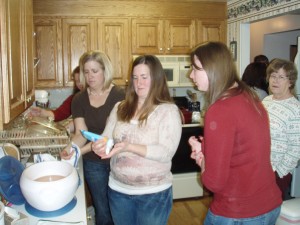
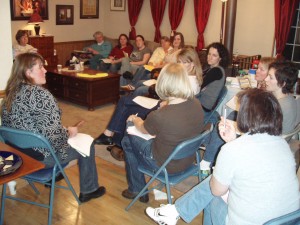

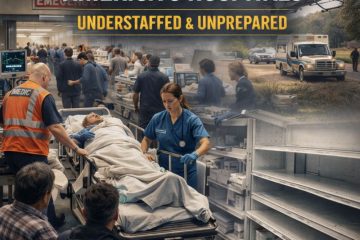
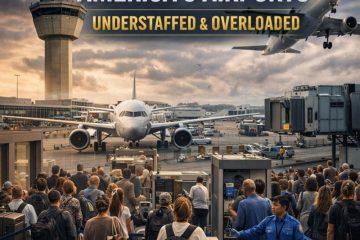

11 Comments
jamie · February 9, 2010 at 10:16 pm
I would also recommend reading how folks back east are handling the snow storm. Some are quite humorous and most folks are doing ok if inconvienced.
Mona Charen: Frontier Suburbanite is a good.
Plus we saved 80 million by having DC take a day off 🙂
Cin · February 10, 2010 at 12:55 am
Community preparedness can be stressful for some at the get go. Meeting and talking to others in number can be intimidating, so might I recommend a family reunion at first, to work out the kinks and stage fright.
The family, if taught any real skills & lessons can, in turn, take something back to their own neighborhoods. Sort of like Paying It Forward! Help spread the knowledge instead of panic before its too late.
Summer · February 10, 2010 at 1:23 am
Well Jamie,
Some like myself have been handling it well. We have lots of food and water storage and so when the masses are out ransacking the store just before a storm, we’ve already got all the necessities we need. Though I did go out before last weekends storm just to snap photos of the grocery store craziness and make a case on my blog for food storage 🙂
jamie · February 10, 2010 at 2:21 am
Summer, I bet that makes a great presentation. LOL
I have to say, I felt a little smug at first. But now I’m looking at all the things I’d like to have done and it got me back to work. I need to update hard copies of important papers, Pics of pets and stuff around the house. EMP boxes and backing up the PC.
Got the smug knock right out of me!!
Claudia · February 10, 2010 at 12:24 pm
EMP is “not a life threatening event”? WHAT??? Thank goodness that “gentleman” isn’t serving in my community. Our first responders take their responsibilities seriously, because it IS serious. I’m just floored over this arrogant and ignorant statement!
Thanks for getting the word out, Kellene. It’s a tremendous idea to see just how prepared our own community responders are in the event of an emergency. Better to be proactive than to have to fix a problem — major or minor — in a state of emergency when resources and manpower may be at a premium.
Slappin’ you big high-fives for bringing this to our attention.
Louise · February 10, 2010 at 5:28 pm
I enjoyed reading this I have stepped up my efforts in recruting people into prepardness efforts. The comment that what ever community you are in is the one you will rely on was very true. My question is what do you take with you when you travel. If I’m within about 50 miles of town on a day trip I take a pack and enough gear to give me a couple of days. I’m concerend though about what I should take for across the country trips when I know I would not be able to get home. What are your thoughts about this?
Kellene · February 10, 2010 at 5:32 pm
Louise, I’ve got a couple of articles on here that specifically addresses those questions. Do a search for 72 hour kits and automobile safety.
Take care and keep preparing!
Susan · February 10, 2010 at 10:24 pm
Kellene~ thank you so much for this post! Please tell us more on this idea party! I love the possibilities. You’re right ~ having a ‘real life’ situation of cooking, etc. brings the lessons home much better. Thanks again!
Susan · February 10, 2010 at 10:27 pm
Oh! I forgot to ask – but I’m very interested in what you have been reading concerning human responses to disasters. Can you give us any titles?
jamie · February 11, 2010 at 11:41 pm
I am really impressed with a lot folks back east. Some of those folks aren’t as wimpy as I thought. Like the folks that got together and cleared a street so a girl could make a cancer treatment appointment. WOW!!
Just shows what folks can do when they work together. They just make stuff happen.
Cliff · February 12, 2010 at 10:23 pm
Some communities offer CERT training for free. It usually takes between 6-8 weeks to get your CERT certification. Quite helpful to your community should the need arise.
Comments are closed.